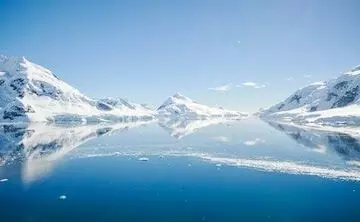
Effects of climate change in Antarctica monitored using drones
text_fieldsMelbourne: In an attempt to track how climate change is affecting the vegetation, researchers have been using drones to map vast areas of Antarctica this summer.
Researchers from Queensland University of Technology (QUT), Australia, and associates are using drone-derived images to assess the delicate ecosystem, in particular moss beds, and changes in the extreme environment.
For almost two months, the field team was based in Antarctica, with indications the drones they piloted captured unprecedented high-resolution imagery of vegetation and biodiversity in protected areas.
The vision taken from Antarctic Specially Protected Areas (ASPAs 135 and 136), not far from the scientists' base settlement of Casey Station, identified areas with moss and lichen not previously picked up by satellite, the study said.
The study is published in the journal Conservation Biology.
QUT Centre for Robotics researcher Juan Sandino, who specialises in mechatronics and automated remote sensing systems, helped develop and deploy drones, classifying Antarctic vegetation at low altitudes.
"Piloting these flights was at times challenging; however all the systems performed well under extreme cold conditions," he said.
He said working in Antarctica demanded rigorous physical preparation and had additional logistical pressure of ensuring the heavy equipment was operational.
The project is co-led by QUT Professor Felipe Gonzalez and Auckland University of Technology Professor Barbara Bollard
The project's key aims included monitoring the vegetation through smart sensors and artificial intelligence, modelling microclimates, and producing accurate maps of protected areas and other ice-free regions.
"Few plants can survive in Antarctica and mosses are the largest and oldest plants to grow there with beds up to 50 metres wide and plants as old as 500 years," Bollard said.
"The moss is sensitive to variations of temperature and moisture in Antarctica and is an important indicator of climate change," Bollard said.
Gonzalez said mapping and monitoring the moss beds over time will help to understand the health of mosses and other vegetation.
Further drone-derived imagery as well as AI for other Antarctic regions may be used to evaluate the effectiveness of area-based conservation interventions in more parts of the icy continent, the study said.
QUT research presented a case and a research agenda evaluating the conservation impact of Antarctica's protected areas.
With PTI inputs





